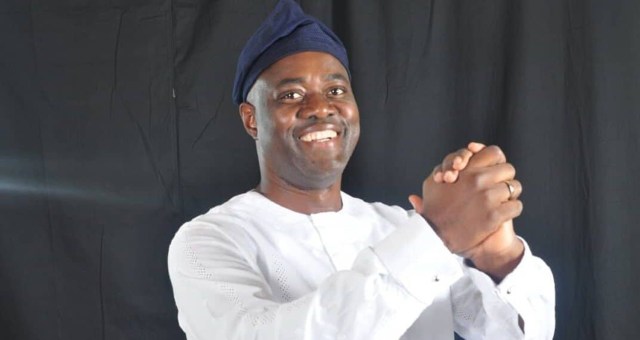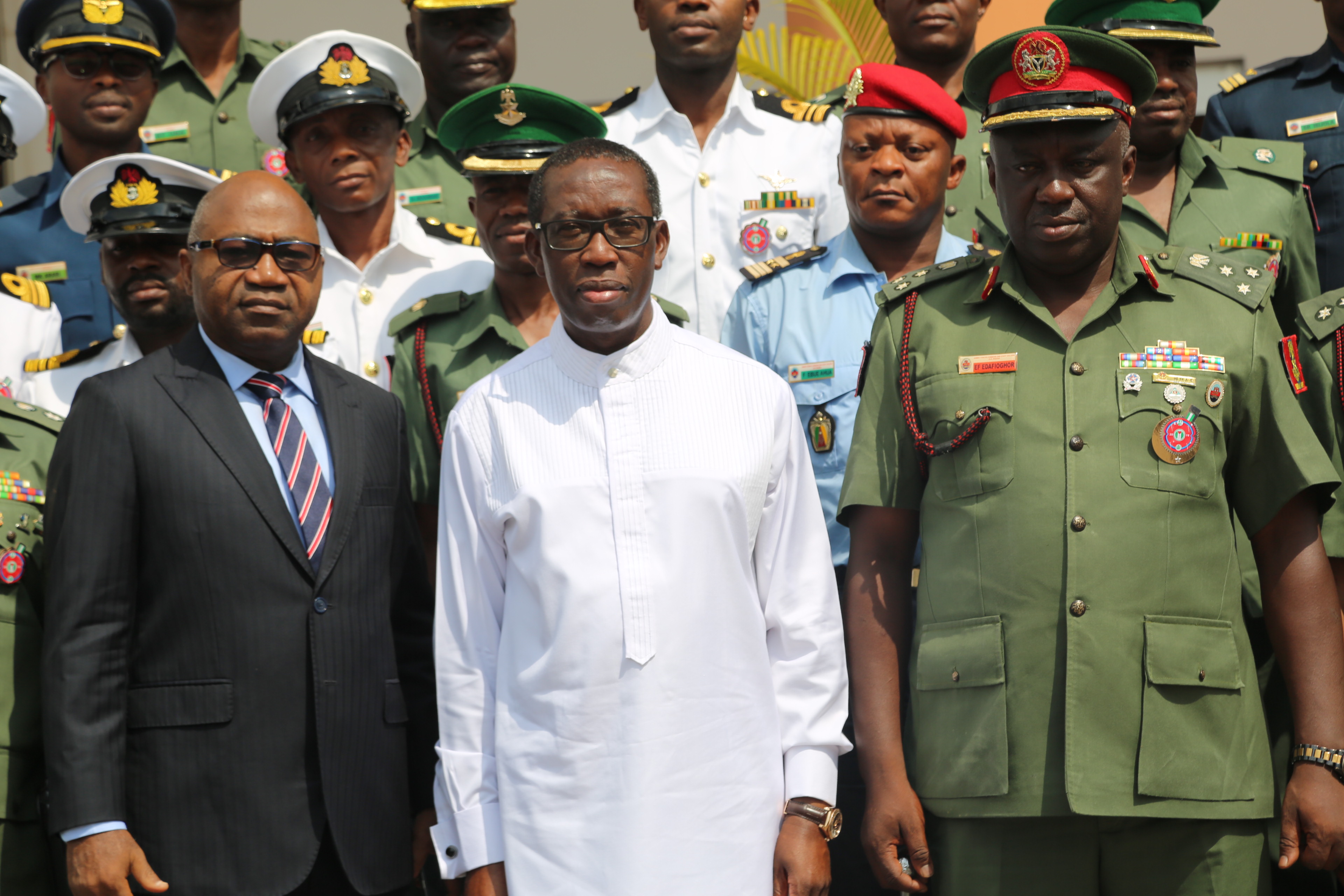Unpacking the main takeaways from President Muhammadu Buhari’s visit to Abidjan, Cote D’Ivoire, starts with the gain from a side event, not the 15th Conference Of Parties to the United Nations Conference on Combating Desertification, UNCCF, which was the main event, considering the significance of what the President set out to achieve.
For the records, this was the first official event hosted by President Buhari following his election in December last year, as the President of the Conference of Heads of States and Government of the member states of the Pan African Great Green Wall Agency, PAGGW.
The background was that in February 2021, the French President Emmanuel Macron, Secretary-General of the United Nations António Guterres, and President of the World Bank Group David Malpass, organized the fourth ‘One Planet Summit’ which will focus on biodiversity to mobilize commitments to protect ecosystems and links to human health.
The summit brought together Heads of State and Governments, leaders of international organizations, financial institutions, companies and NGOs, at the end of they demonstrated strong commitments that will lead to actions to preserve and restore biodiversity, and systemic transformations of economies.
President Buhari got elected to and found on the table of the One Planet Summit Initiative pledges amounting to $19 Billion to support the activities of the PAGGW.
The necessity of this meeting was the need on the part of the 11-member bloc, made up of Nigeria, Senegal, Niger, Sudan, Mauritania, Ethiopia, Mali, Eritrea, Djibouti, Burkina Faso and Chad, facing dire and present danger due to the devastating effect of desertification and drought, impacting negatively on the security of their communities and the livelihood their people to confront these challenges associated with desert encroachment and drought.
The major objective of the President’s meeting was to draw attention to the USD 19 billion pledge and to trigger the process for accessing the funds in order to immediately embark upon land restoration and tree planting, investment in small and medium sized farms/support to small holder farmers, development of climate resilience infrastructure, institutional framework to enhance security, stability and governance and capacity building.
The President, in his capacity as the President of the member-states of PAGGW called on the World Bank, African Development Bank and the One Planet Summit Initiative to support this drive by setting up a ‘Task Team’ to work with PAGGW, and further requested the UNCCD and One Planet Summit to advise on a suitable Financial Consultant for the PAGGW that can coordinate the process under the auspices of the UNCCD and PAGGW in a transparent manner.
If these steps follow as expected, access should immediately be ensured to these huge funds in the of opening “a new era for the GGW.”
As emphasized by the President as well as Amina Mohammed, the Deputy Secretary General representing the United Nations, what is needed at this time is action “with scale and urgency,” to set in motion the re-greening of the Sahel and changing the fortunes of the 1.3 billion people inhabiting the entire region.
President Buhari, who over the years had taken the advocacy for Congo River Inter-Basin Water Transfer, a project that would redistribute water from the Ubangui River into Lake Chad saw an opportunity in the pledges and charged the GGW agency, the funders and the consultant to-be to give a serious consideration to the issue.
He also highlighted the several environmental challenges including creeping land degradation, desertification and drought in the Northern region, to wanton deforestation, land encroachment, invasion of coastal line, biodiversity loss, flooding and coastal erosion in the Southern region of the country.
According to him, this reality is what reinforces Nigeria’s commitment to the United Nations Convention to Combat Desertification 2018-2030 Strategic Framework, geared towards mitigating the effects of desertification, land degradation and drought. In line with this, he urged the Parties to seize the momentum created by the conference to accelerate their commitments to achieving land degradation neutrality in order to restore the productivity of vast expanses of degraded land, improve the livelihood of more than 1.3 billion people and reduce the impact of drought in the affected regions.
President Buhari saw in the theme “Land, Life, Legacy: From scarcity to prosperity” as a clarion call to action for global leaders to halt and reverse the three “Ds” planetary land crises of desertification, degradation and drought, as envisioned by the United Nations Decade on Ecosystem Restoration; and to restore our lands, in order to fulfill our food, water and energy needs. He charged the international community to demonstrate enough political will and commitment towards the realization of the pledge to restore one billion hectares of land by 2030, which should hopefully save humanity from starvation and preserve the planet for future generations.
President Buhari welcomed the UNCCD’s goal of land degradation neutrality and went on to highlight Nigeria’s commitment to its National Action Plan which is being implemented through National Policies, Institutional and Legislative Framework, Sectoral Programmes and Partnership Building that have been put in place to address the problem of drought and desertification.
For example, he reported establishment of an early drought warning system that involves local people in designing, implementing and managing of natural resources conservation programmes for combating desertification and ameliorating the effects of drought. Furthermore, Nigeria has been collaborating with development partners in areas of training, research, development and transfer of affordable and acceptable environmentally friendly technologies to mitigate drought and desertification.
Nigeria has also revised its National Forest Policy in 2020 which he said is a remarkable improvement on the previous one which had been in use since 2006. The country has also launched the National Strategy on Combating Wildlife and Forest Crime in 2022. The new policies are anchored on the need for continuous socio-economic development that will provide optimal benefits to the people and government of Nigeria in a sustainably managed environment.
There are also Forestry Programmes implemented by Forestry Research Institute of Nigeria to tackle the problems of desertification through the establishment of woodlots, shelterbelts and windbreaks. Through these programmes, the government is able to establish a Green Wall or Shelterbelt across the frontline States over hundred kilometers in width, stretching from the Northwest to the Northeast of the country.
Nigeria, reported the President, has also established a National Forestry Trust Fund aimed at improving afforestation programmes in the country, ensuring sustainable financing from non-government sources for the restoration of Nigeria’s forest estates and reserves and production of landscapes in order to achieve significant increase in our forest cover.
Through the nation’s National Afforestation Programme under the green bond project, Nigeria has successfully forested over Six Million, One Hundred And Ninety-One Thousand, Three Hundred And Sixty-Three Hectares of land through the green bond project. The target is to increase the nation’s forest cover to Twenty-Five percent in line with global best practices and also in fulfilment of the pledge he made at the 74th Session of the United Nations General assembly in September, 2019, of planting Twenty-Five Million trees towards achieving restoration of degraded forest reserves and other landscapes nationwide.
Nigeria has also expanded protected areas by creating ten additional National Parks, including two (2) Marine Protected Areas, cutting across the various ecological zones of the country, and accelerated the implementation of the ongoing Ogoni Clean-up for restoration of polluted land as well as implementation of the Great Green Wall programme hinged on ecological restoration and rehabilitation of degraded land in the Southern part of the country.
The National Agency of the Great Green Wall in Nigeria has made progress in land restoration of over Three Thousand Eight Hundred and Ninety-two hectares of land.
Furthermore, the Federal Government of Nigeria, in partnership with the World Bank, expended enormous resources to establish Agricultural Development Programmes in all the Thirty-Six States of the Federation and the Federal Capital Territory. The ADPs operate the Training and Visit system of unified extension system covering the areas of Crop Production and Protection, Livestock Production and Animal Health, Fisheries, Agro-forestry and Gender related issues in Agriculture popularly referred to as Women-In-Agriculture.
He gave assurances that Nigeria is dedicated to fulfill the pledge to the African Forest Landscape Restoration Initiative that seeks to restore 100 million hectares of degraded and deforested landscapes by 2030 in response to the Bonn challenge. To date, the initiative has 128 million hectares in pledges from 32 African countries. In 2017, Nigeria committed to restore 4 million hectares of degraded forest landscapes under the AFR100 initiative. So far, over Five Hundred and Fifty-Five Thousand, Four Hundred and Eight Hectares of land restoration have been recorded, including the planting of Fifteen Million tree seedlings covering over Twelve Thousand, Five Hundred Hectares of deforested lands.
On finance, domestically, the President said that the country has made efforts for funding a pipeline of projects in our path to a greener economy and that Nigeria has issued its first and second Sovereign Green Bonds. So far, two rounds of the green bond have successfully been executed. The first round of the green bond amounted to $27.3 million, the second amounted to more than $41 million. We are currently on the verge of launching the third green bond to the tune of $68.7 million. Through the instrumentality of the green bond programme, innovative funding streams are being unlocked in order to finance environmentally and climate friendly projects with focus on both adaptation and mitigation.
In reiterating Nigeria’s commitment to the goals of the conference, the President highlighted the major obstacle, which is finance, and used the platform to appeal for the redemption of the pledges made by International Technical and Financial Partners to provide the $19 billion dollars as assistance to the Green Wall Member Countries to enable them meet their commitments.
Although the meeting was focused on the problems of desertification and drought, the President observed that without a peaceful world, there can be no development. In the light of this, he called for a ceasefire and cessation of conflicts where they exist and especially the Russian – Ukraine war. “We call on all the parties to return to the negotiation table with a view to putting an end to this needless conflict,” said the President.
As a leader, President Buhari over the years has shown the world that he is at the forefront of world leaders determined working to save the planet from the ill-effects of climate change.
In this role as the President of the Conference of Presidents and Heads of Government of the Great Green Wall countries, he has found a perfect chance to do for Sub-Saharan Africa, what he is doing at home in Nigeria. This, he is determined to do.
Garba Shehu is the Senior Special Assistant (SSA) to the President, Media & Publicity.




